This article introduces you to Trump's "Crypto Seven Seas" and how Vice President Vance can impact the crypto market.
(Background: U.S. Commerce Secretary: Trump Will Announce Bitcoin Reserve at White House Crypto Summit, BTC Surges to $91,000)
(Additional Context: U.S. Congressman Proposes "Printing Trump's Portrait on $100 Bill", Could Happen as Early as 2028, A Bootlicking Competition?)
Previously there were the "Silicon Valley Eight Rebels", and now there are Trump's "White House Eight Generals". The former pioneered a era of technological innovation in the US, while the latter are now shaking up the Altcoin industry.
In contrast to the "Crypto Strict Regulation" style of the Biden administration, the "Crypto-Friendly Wind" of the Trump era is blowing across the American political and business circles. And the "Crypto Advisory Team" assembled by Trump, which is a group of government officials who are outspoken supporters of Altcoins, some of whom can even be called radical.
This is also related to the background of the members of the "Crypto Advisory Team" themselves, who are either famous members of the PayPal mafia in Silicon Valley or the most outspoken supporters of Altcoins in the SEC and CFTC.
Trump himself has a traceable "track record" and "influence" in Altcoins. From November 2024 to the present, he has led three major market trends. In November 2024, a month after Trump won the election, the Altcoin market rallied for a full month; on January 18, 2025 (two days before Trump officially took office as President), Trump announced the issuance of the memecoin - Trump, which reached a market cap of $80 billion in three days, draining the entire Altcoin market, and the next day Trump's wife also issued a memecoin, which became a key turning point for the Altcoin market to turn from prosperity to decline.
And this month (March 2), Trump took action again, announcing the inclusion of BTC, ETH, Sol, ADA, and XRP in the national reserves, and within a day, Altcoins like BTC surged again, ending a week-long downtrend, but after the news hype ended, the Altcoin market cooled down again. It can be said that almost every time the Trump team releases information, it can cause significant fluctuations in the Altcoin market.
Here is the English translation of the text, with the content inside <> retained without translation:The "crypto aides" behind Trump are undoubtedly masters of cryptocurrency. They not only hold high positions and serve as the highest decision-makers in important positions across the United States, but their attitudes towards cryptocurrency are also very clear and even radical. It can be foreseen that they will continue to have a profound and lasting impact on the development of the entire cryptocurrency industry in 2025 and even the next four years.
On this occasion, I have compiled a list of eight key figures around Trump who are currently and will continue to have a direct and significant impact on the cryptocurrency industry. They are the "Crypto Tsar" David Sacks, the current acting SEC Chairman Mark T. Uyeda, SEC Chairman Paul Atkins, "Crypto Mom" Hester Peirce, the current CFTC Chairman Brian Quintenz, Treasury Secretary Scott Bessent, Commerce Secretary Howard Lutnick, and Vice President JD Vance.
Crypto Tsar David Sacks: Bitcoin has the potential to become the next-generation internet
David Sacks is a key driver of the White House's first cryptocurrency summit, which will be held on March 7.
David Sacks is one of the most critical figures in Trump's crypto inner circle. On January 23, 2025, Trump signed an executive order establishing the "Presidential Digital Asset Market Working Group," which is led by David Sacks.
On December 5, 2024, Trump announced through his Truth Social platform that David Sacks would be the "White House AI and Cryptocurrency Tsar." In the announcement, Trump stated that David Sacks would "guide the government's policies on artificial intelligence and cryptocurrency" and "strive to make the United States a global leader in these two fields."

David Sacks and Trump
The "Crypto Tsar" is a new position established by Trump to drive the development of cryptocurrency. The role is responsible for coordinating the federal government's regulatory policies on cryptocurrency, with highly concentrated power to quickly liaise with agencies such as the SEC, Treasury Department, and Commerce Department to advance the cryptocurrency agenda.
David Sacks is a highly visionary investor and entrepreneur. As early as 2013, he expressed his optimism about Bitcoin, stating on social media at the time: "Bitcoin has the potential to become the next internet - the internet of money. I'm buying in." He started purchasing Bitcoin in 2012 and has repeatedly stated that Bitcoin's transformative potential lies in its ability to function as a "non-fiat currency." He believes that Bitcoin is not dependent on the government but is supported by mathematics and cryptography, providing a financial system independent of government control.
David Sacks is not only a Silicon Valley venture capitalist but also a founding member of the PayPal team, with close ties to Elon Musk and Peter Thiel, who are part of the "PayPal Mafia." David Sacks also closely collaborated with Musk during his acquisition of Twitter in 2022.
In 2017, David Sacks founded the venture capital firm Craft Ventures and has made significant investments in cryptocurrency and AI startups, participating in the early-stage investments of companies like dYdX and Lightning Labs.
Acting SEC Chairman Mark T. Uyeda: The war on crypto must end
"The war on crypto must end. We need safe harbors and regulatory sandboxes to allow innovation to thrive," Uyeda said in a November 23, 2024 interview with Stuart Varney.
Uyeda is the current acting SEC Chairman, known for his crypto-friendly attitude.
Previously, he has long opposed the SEC's use of enforcement actions rather than clear rules to regulate the cryptocurrency industry under the leadership of former SEC Chairman Gary Gensler, believing this approach has had a disastrous impact on the industry's development. He has also jointly opposed the SEC's rejection of Coinbase's rulemaking request with Peirce, arguing that the SEC should actively respond to the industry's needs.
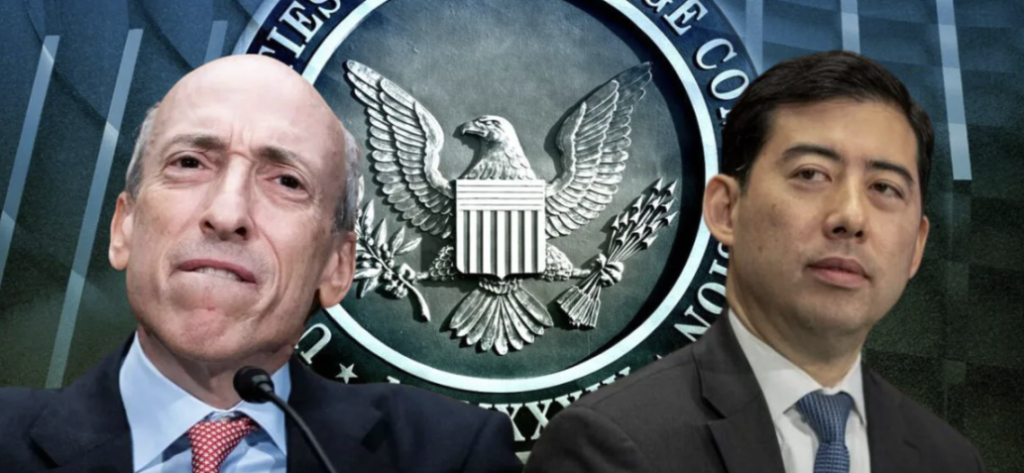
The image on the left is former SEC Chairman Gary Gensler, and the image on the right is current Acting SEC Chairman Mark T. Uyeda.
After taking office as the acting SEC Chairman, Uyeda quickly took action, announcing the establishment of a new "Crypto Task Force" on January 21, 2025, led by SEC Commissioner Hester Peirce, with the aim of developing a comprehensive and clear regulatory framework for crypto assets.
Upon taking office, Uyeda immediately nominated another crypto-friendly former SEC Commissioner, Paul Atkins, as the permanent SEC Chairman (subject to Senate confirmation).
SEC Chairman Paul Atkins: Digital assets are the key innovation to make America great again
Both "Crypto Mom" Hester Peirce and current Acting SEC Chairman Mark T. Uyeda have previously served as lawyers on the private team of then-SEC Commissioner Paul Atkins, maintaining long-term relationships with him.
Paul Atkins was appointed by Trump as the SEC Chairman (acting), but still requires final confirmation by the Senate. After being nominated by Trump as the permanent SEC Chairman in January 2025, he declared, "Digital assets are the key innovation to make America great again. The SEC's role is to support vibrant and innovative capital markets, not to suppress new technologies with outdated frameworks."
Atkins is widely regarded as a staunch supporter of cryptocurrency, and he has gained widespread support from the crypto community, with figures like Ripple CEO Brad Garlinghouse and Gemini exchange's Cameron Winklevoss publicly praising his nomination, believing it will bring "common-sense regulation" to digital assets.
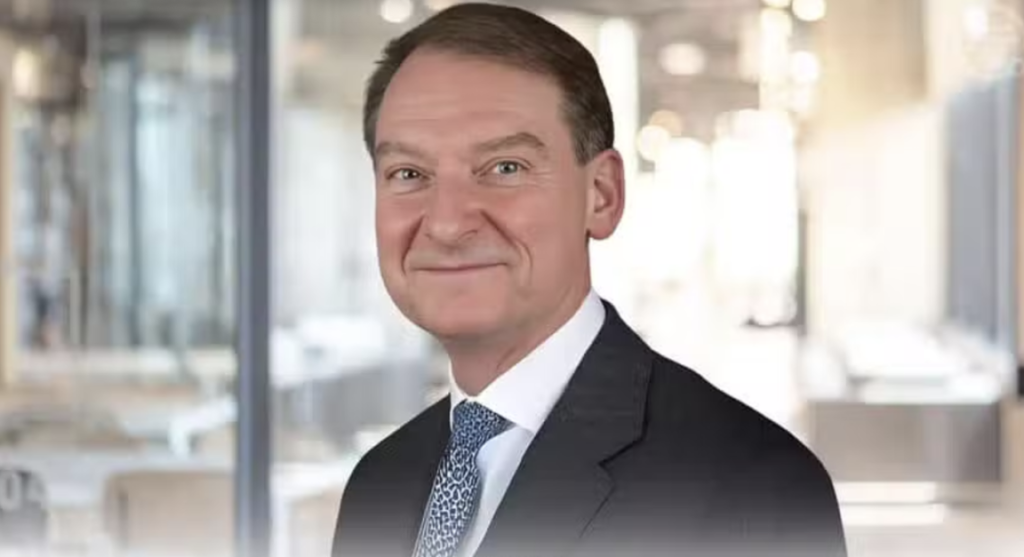
Atkins is also the current CEO of Patomak Global Partners, a consulting firm that provides services to the financial and cryptocurrency industries.
Atkins will form a pro-crypto policy team with other Trump financial officials, such as Bitcoin-supporting Treasury Secretary Scott Bessent and Commerce Secretary Howard Lutnick.
"Crypto Mom" Hester Peirce: DeFi is the testing ground for financial democratization
During Biden's presidency, Hester Peirce was the most vocal supporter of cryptocurrency innovation within the SEC. She said: "DeFi is the testing ground for financial democratization."
As early as 2018, she stated: "We may be entering a new era where all transactions in financial markets are recorded on the blockchain... We should welcome this possibility, not try to kill it."
Now, Hester Peirce has also become a key female figure in Trump's administration, known for her open-minded attitude towards cryptocurrency and blockchain technology.
Peirce was appointed as an SEC Commissioner in 2018 and has repeatedly expressed her support for cryptocurrency innovation during her tenure.
Here is the English translation of the text, with the terms in <> retained as is:When she dissented against the rejection of the Winklevoss Bitcoin ETF in 2018, she said: "The SEC's reasons for rejecting the Bitcoin ETF are unfounded, we are depriving investors of choice without evidence that the market will be harmed." This stance earned her the title of "Crypto Mom" in the crypto community for the first time.
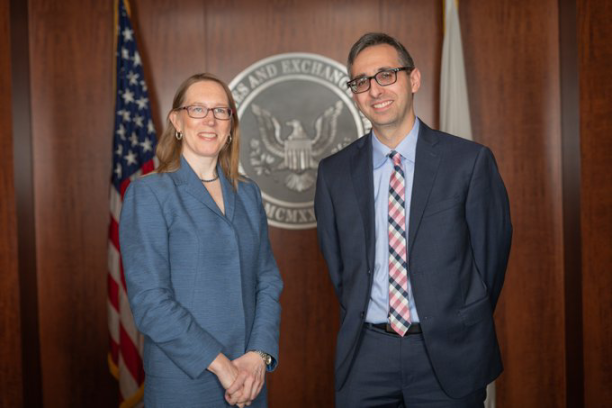
Crypto Mom Hester Peirce
Peirce's main contributions to cryptocurrencies include: believing that the SEC's overly strict regulations hinder innovation in the crypto industry, repeatedly criticizing the SEC's rejection of Bitcoin spot ETFs, and advocating for a clearer regulatory framework for decentralized finance (DeFi).
In 2020, Peirce also proposed a "safe harbor" proposal, which suggested allowing crypto projects to be exempt from the strict restrictions of securities laws for 3 years, so that projects could develop and achieve decentralization without the threat of SEC oversight. Although this proposal was not adopted by the SEC, it sparked widespread discussion in the industry. She is also one of the few SEC commissioners who support the listing of Bitcoin ETFs.
On March 3, 2025, the SEC announced the member list of the "SEC Crypto Task Force", further confirming Peirce's leadership of this task force.
CFTC Chairman Brian Quintenz: Bitcoin is a commodity, just like gold or oil
"Bitcoin is a commodity, just like gold or oil," said Brian Quintenz, the current CFTC Chairman of the United States.
Brian Quintenz was previously the policy chief of the cryptocurrency division at a16z. Now, he has become the current chairman of the U.S. Commodity Futures Trading Commission (CFTC).
Currently, he is seen as one of the key figures in the Trump administration pushing for cryptocurrency policy.
Brian Quintenz was nominated by President Donald Trump and officially confirmed by the Senate in February 2025.
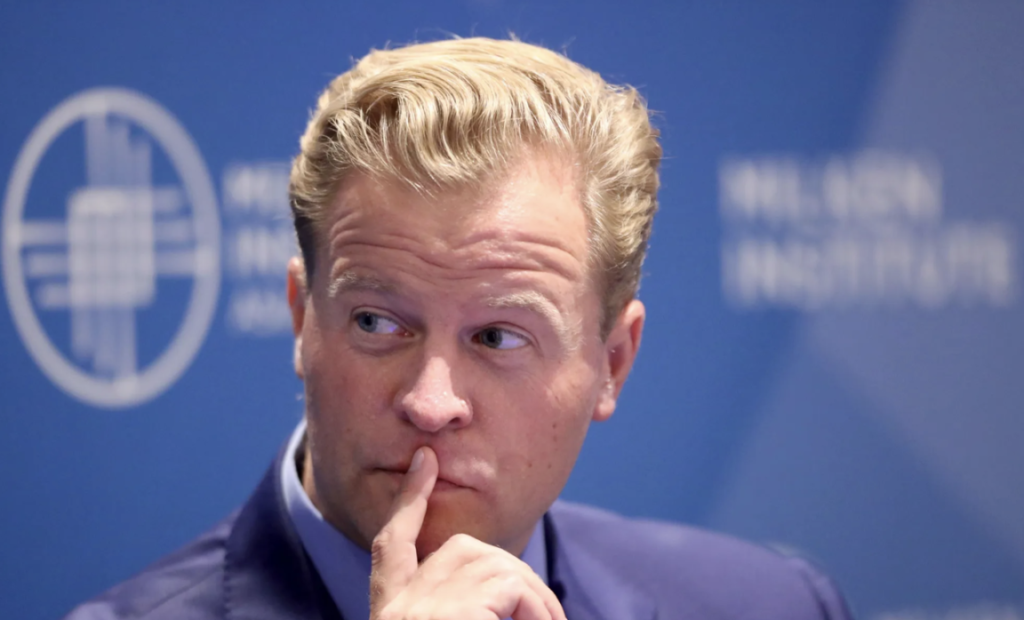
During his tenure as a CFTC commissioner from 2017 to 2021, he led the agency's Technology Advisory Committee and hosted multiple public policy discussions and briefings on cryptocurrencies and blockchain technology. He actively advocated for a "gentle" regulation of cryptocurrencies, emphasizing that innovation should not be stifled while protecting investors.
He has pushed for the launch of the first regulated Bitcoin and Ethereum futures contracts on U.S. derivatives exchanges, demonstrating his deep understanding and supportive attitude towards the crypto market.
Brian Quintenz supports viewing most crypto assets as commodities rather than securities, which is consistent with CFTC's jurisdiction. He has publicly questioned the SEC's stance on assets like Ethereum, arguing that if Ethereum is considered a security, its futures contracts would be illegal. He has pushed for CFTC to be the primary regulator of the crypto market, to avoid the strict framework of the SEC.
After leaving the CFTC, Brian Quintenz joined the venture capital firm Andreessen Horowitz (a16z) as the head of policy for its cryptocurrency division, dedicated to promoting regulatory reforms favorable to the crypto industry.
In terms of personal investments, Brian Quintenz has invested in the Grayscale Bitcoin Trust, indicating his confidence in crypto assets.
At the national level, Brian Quintenz is also an active supporter of cryptocurrencies. "A national crypto reserve is not a dream, but a strategy, and the CFTC will work with the government to explore how Bitcoin can enhance the resilience of the U.S. economy," he said at a summit in March 2025.
Treasury Secretary Scott Bessent: Cryptocurrencies are about freedom, a national crypto reserve is not a dream
"A national crypto reserve is not a dream, but a strategy, and Bitcoin can enhance the resilience of the U.S. economy," said current Treasury Secretary Scott Bessent in January 2025.
Scott Bessent is a radical supporter of cryptocurrencies. He has predicted that the price of Bitcoin will reach $980,000. According to the financial disclosure records of the U.S. government's Office of Government Ethics released in January 2025, Bessent holds a BlackRock Bitcoin spot ETF (IBIT) valued between $250,000 and $500,000.
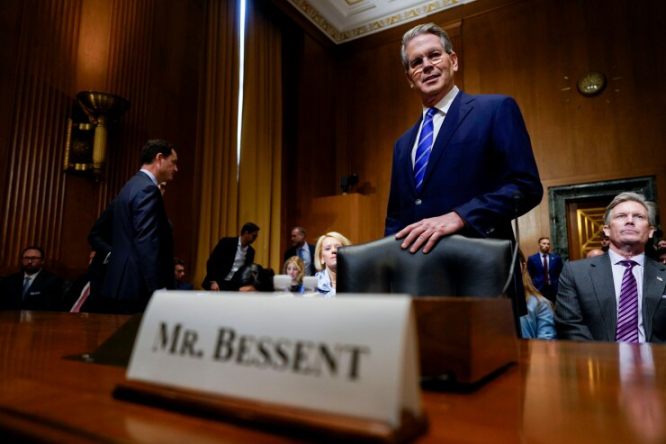
The image shows Scott Bessent
Scott Bessent is the founder of Key Square Capital Management and has served as a partner and chief investment officer at George Soros' Soros Fund Management.
Bessent has publicly expressed his support for cryptocurrencies, especially Bitcoin. He believes that cryptocurrencies represent "freedom" and are a key component of financial system innovation. In a July 2024 interview with Fox Business, he stated: "Cryptocurrencies are about freedom, and the crypto economy will exist in the long run." He also pointed out that Bitcoin is attractive to the younger generation and those outside the traditional banking system, and can "cultivate a market culture in America".
He supports Trump's idea of establishing a national strategic Bitcoin reserve, believing that this can position the U.S. as a global leader in digital assets.
Commerce Secretary Howard Lutnick: Bitcoin, that's the future of the economy!
"Bitcoin, that's the future of the economy!" said the current U.S. Commerce Secretary Howard Lutnick in a public speech.
Lutnick has a positive attitude towards cryptocurrencies, and has publicly supported Bitcoin and other digital assets. He has compared Bitcoin to gold and advocated for its global free trade. In February 2025, Howard Lutnick was confirmed by the U.S. Senate and appointed as the U.S. Commerce Secretary.
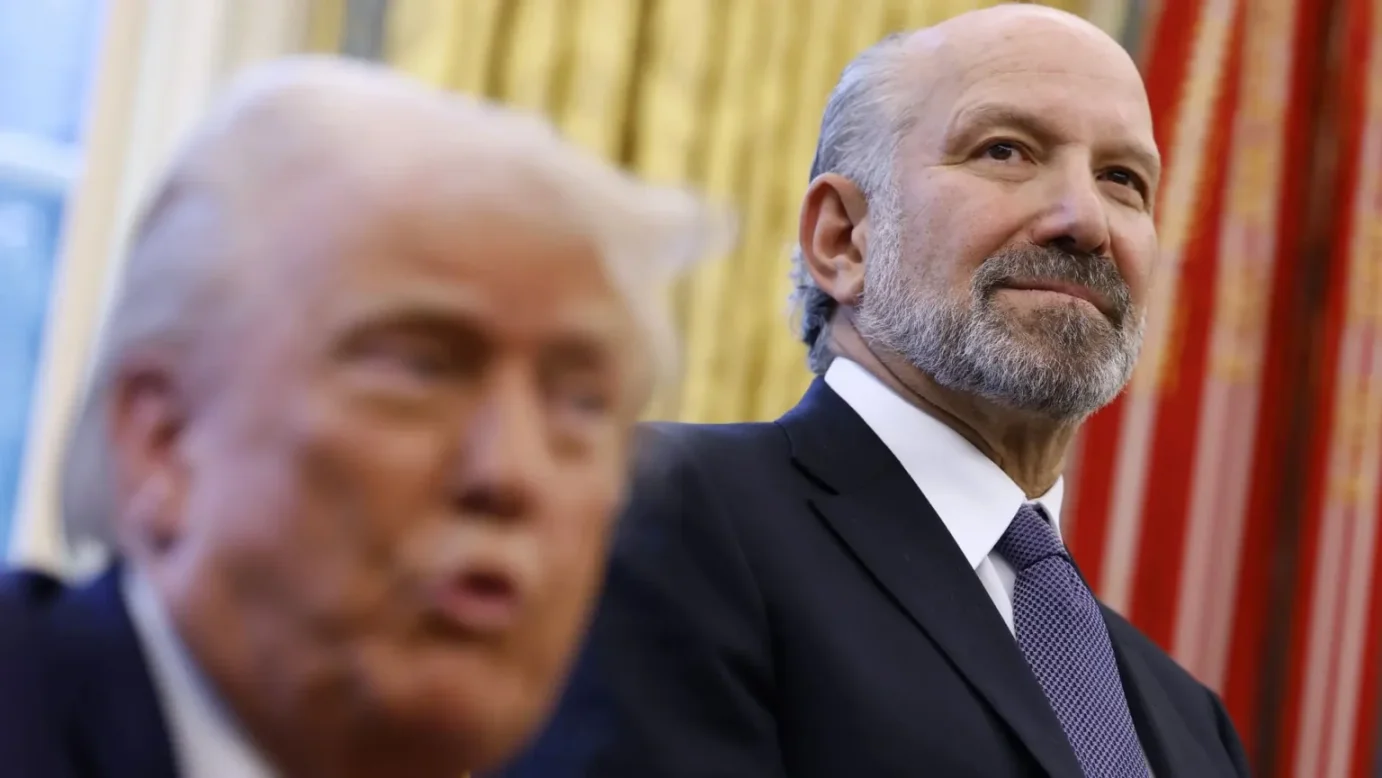
Prior to this, Lutnick served as the CEO of the financial services firm Cantor Fitzgerald, which is a key partner of the global stablecoin Tether (USDT), responsible for managing a portion of Tether's reserve assets (including U.S. Treasuries).
As the CEO of Cantor Fitzgerald, Lutnick actively supports Tether (USDT) and vouches for the legality of its reserve assets. He pointed out that Cantor Fitzgerald, as a primary dealer of U.S. government bonds, is able to meet large-scale redemption demands, ensuring the stability of Tether.
Lutnick has also posted on X saying: "Tether is the pillar of the crypto economy, and those who question it don't understand modern finance."
Vice President JD Vance: The first presidential candidate to own Bitcoin
The current U.S. Vice President JD Vance is the first presidential candidate in American history to own Bitcoin.
Vance has repeatedly viewed Bit as a tool to fight government control of finance. In his 2024 campaign, he stated: "Bit represents a decentralized future that we need to protect from bureaucracy." Although he did not explicitly support Trump's "national Bit reserve" plan, his remarks echoed this vision.
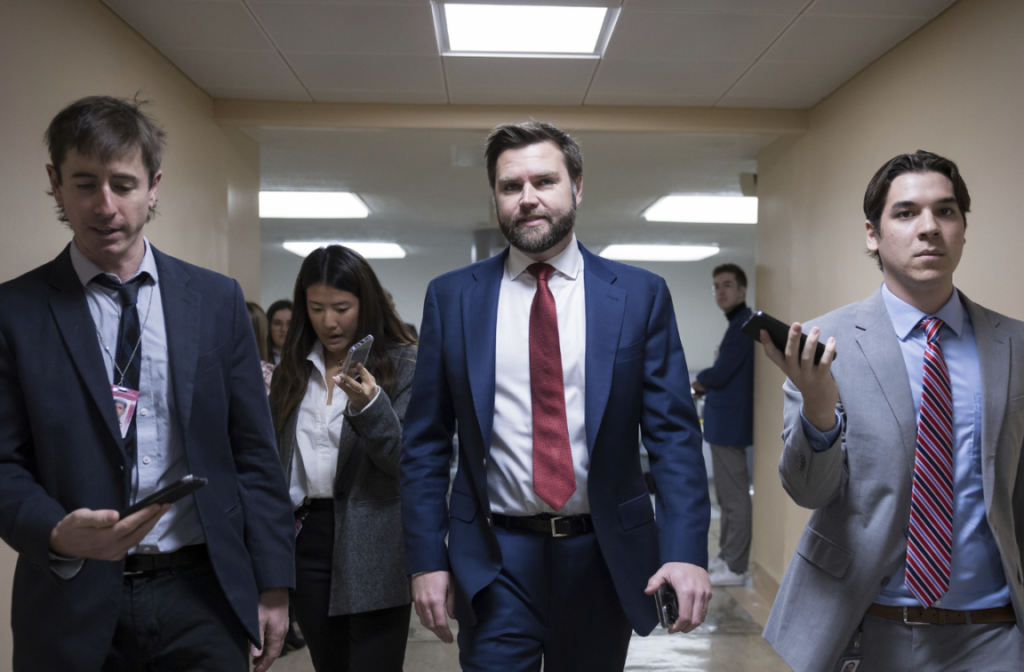
In 2022, when the Canadian government froze the bank accounts of those involved in the Ottawa truck driver protests, Vance posted: "This is why Altcoins are thriving - if your political views are wrong, the government will cut off your access to banking services."
According to public disclosures in 2023, Vance held between $250,000 and $500,000 worth of BTC through Coinbase. After being nominated as a vice presidential candidate, Vance liquidated his personal BTC holdings in late July 2024 to avoid potential conflicts of interest. This was consistent with his wife Usha Vance's resignation from the law firm Munger, Tolles & Olson (which had provided legal services to Coinbase).
Like crypto czar David Sacks, Vance's career in Silicon Valley has allowed him to establish close ties with tech leaders who support Altcoins. In 2019, Vance co-founded the venture capital firm Narya Capital with Peter Thiel, the co-founder of PayPal, and Eric Schmidt, among others, focusing on tech startups in the Midwest. After being elected to the Senate in 2022, he resigned from his partnership role but still holds at least $500,000 in shares of the company.
In Conclusion
Trump has become the person who can most influence the crypto industry ecosystem in the world today.
His radical attitude towards Altcoins stems partly from Trump's personal inclination, and partly from the long-standing attitude of his core team members and core supporters towards Altcoins.
In 2013, crypto czar David Sacks began publicly supporting Bit, as a founding team member of PayPal, he believed that BTC was consistent with PayPal's original dream of establishing a global currency. And in 2018, when Peirce was still an SEC commissioner and Quintenz was still a CFTC commissioner, they publicly criticized the authorities for being too harsh in regulating the Altcoin industry, and now they have become the leaders of the SEC and CFTC.
When an arrow that has been building up for seven years is fired and hits the bull's-eye, the energy it unleashes will continue to expand.






